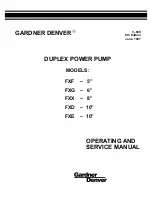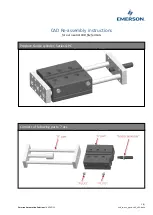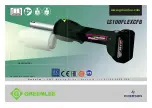
4. AIR SUPPLY
1. Ensure tool air valve (or trigger) is in “off ” position before connecting to the air
supply.
2. You will require an air pressure of 90psi, and an air flow according to
specification.
WARNING!
Ensure the air supply is clean and does not exceed 90psi while
operating the tool. Too high an air pressure and unclean air will shorten the
product life due to excessive wear, and may be dangerous causing damage
and/or personal injury.
3. Drain the compressor’s air tank daily. Water in the air line will damage the
tool.
4. Clean the compressor’s air inlet filter weekly.
5. Line pressure should be increased to compensate for unusually long air
hoses (over 8 metres). The minimum hose diameter should be 1/4” I.D. and
fittings must have the same inside dimensions.
6. Keep hose away from heat, oil and sharp edges. Check hose for wear, and
make certain that all connections are secure.
7. Vibration may cause failure if a quick change coupling is connected directly to
the tool.
8. To overcome this, connect a leader hose to the tool. A quick change coupling
may then be used to connect the leader hose to the air line recoil hose. See fig 1.






























